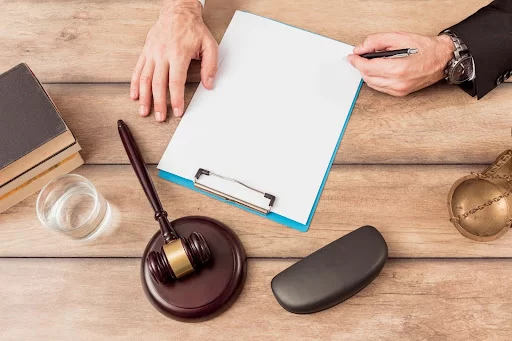- Understanding Civil Lawsuits and Their Nature
- Preparing Your Defense: Key Steps Before Court
- Courtroom Strategies for Fighting a Civil Lawsuit
- Real Case Example: How Preparation Made the Difference
- Where to Get Help: Professional Legal Support
1. Understanding Civil Lawsuits and Their Nature
When someone faces a civil lawsuit, the stakes can be significant—ranging from financial damages to reputational harm. Unlike criminal cases, civil lawsuits primarily focus on resolving disputes between private parties, often over contracts, property, or personal injury claims. The process usually begins when the plaintiff files a complaint, and the defendant is served with legal papers requiring a response.
Fighting a civil lawsuit in court requires a clear understanding of the legal framework governing the case. This includes the rules of civil procedure, evidence requirements, and the burden of proof, which is generally "preponderance of evidence" rather than "beyond a reasonable doubt" as in criminal trials. Knowing these distinctions can influence how you build your defense and engage with the court process.
For many, the civil litigation process can feel daunting and complex, but approaching it with organized preparation helps demystify the experience and strengthens your position.
1.1 Types of Civil Lawsuits Commonly Encountered
Civil lawsuits vary widely—from breach of contract disputes and landlord-tenant issues to personal injury claims and defamation cases. Each type has its own nuances and legal standards, which shape how you should respond. For instance, a contract dispute often revolves around proving agreement terms and breaches, whereas a personal injury case centers on proving negligence and damages.
1.2 Initial Responses Matter
The moment you receive a lawsuit notice, your immediate response sets the tone for your defense. Ignoring court papers can lead to default judgments, making it impossible to defend later. Promptly consulting with a qualified attorney and crafting a timely answer is crucial to preserving your rights.
2. Preparing Your Defense: Key Steps Before Court
Successful defense against a civil lawsuit starts well before you step into the courtroom. Preparation involves gathering evidence, understanding the claims against you, and organizing your facts clearly.
2.1 Collecting and Preserving Evidence
Every detail counts when defending yourself. This includes contracts, emails, text messages, photos, witness statements, and financial records. For example, if you are accused of breaching a contract, having signed agreements and communication logs can decisively support your position. Make sure to store these securely and keep digital backups to avoid accidental loss.
2.2 Developing a Legal Strategy
Legal strategy involves analyzing the plaintiff’s claims and identifying potential weaknesses. This might mean challenging the validity of the evidence, questioning the legal basis of the claim, or proposing alternative interpretations. Sometimes, settlements or mediation can be a strategic option to avoid prolonged litigation and reduce costs.
2.3 Engaging Legal Counsel
While self-representation is possible, having a skilled lawyer significantly improves your chances of a favorable outcome. A lawyer will navigate procedural requirements, file motions, and negotiate on your behalf. At Fred Miller Lawyer, expert assistance is available to tailor the best defense approach according to your unique situation.
3. Courtroom Strategies for Fighting a Civil Lawsuit
Once in court, your defense must be clear, persuasive, and well-supported. The courtroom environment demands professionalism and a thorough understanding of how to present your case effectively.
3.1 Presenting Evidence and Witnesses
Effective use of evidence is critical. Organize your documents logically and be prepared to explain their significance. Witness testimony can reinforce your claims or disprove the plaintiff’s version. Preparing witnesses beforehand ensures their statements are coherent and credible.
3.2 Cross-Examination Techniques
Cross-examining the opposing side’s witnesses allows you to expose inconsistencies or biases. This requires tact and practice to avoid appearing aggressive while gently undermining their credibility.
3.3 Maintaining Composure and Focus
Court proceedings can be stressful, but maintaining calm and staying focused on facts helps you communicate clearly and leaves a positive impression on the judge or jury.
4. Real Case Example: How Preparation Made the Difference
Consider a recent civil case where a small business owner was sued for alleged breach of contract. Initially overwhelmed, the defendant engaged a legal expert who helped gather extensive email correspondence and payment records. The lawyer identified key weaknesses in the plaintiff’s claim and negotiated a favorable settlement after partial hearing success. This case illustrates how detailed preparation and expert advice can turn the tide in court.
5. Where to Get Help: Professional Legal Support
Fighting a civil lawsuit in court can be complex and emotionally taxing. Professional legal guidance not only provides practical support but also boosts confidence throughout the process. For tailored assistance, Fred Miller Lawyer offers comprehensive services to help you navigate civil litigation with a strategic edge, ensuring your rights are well protected.


 letnick law firm plc
letnick law firm plc carl spector attorney
carl spector attorney myers brier and kelly
myers brier and kelly mercaldo law
mercaldo law bright law pllc
bright law pllc linda kerns law
linda kerns law